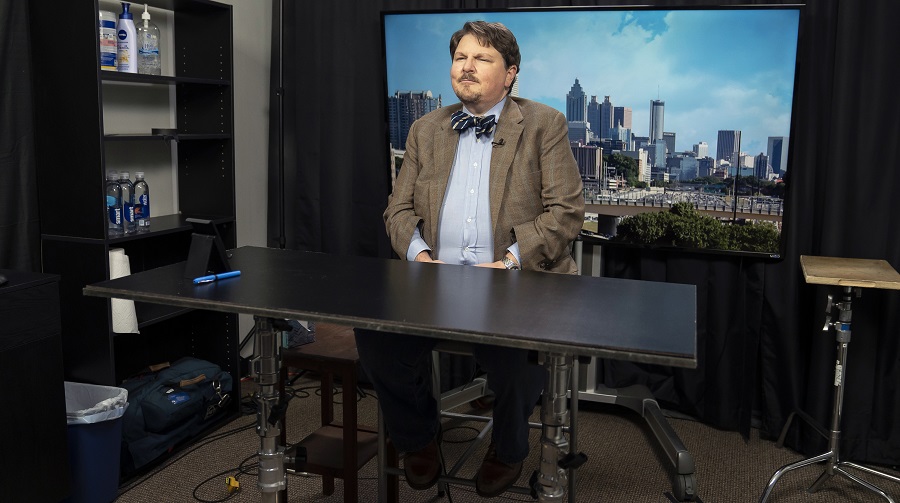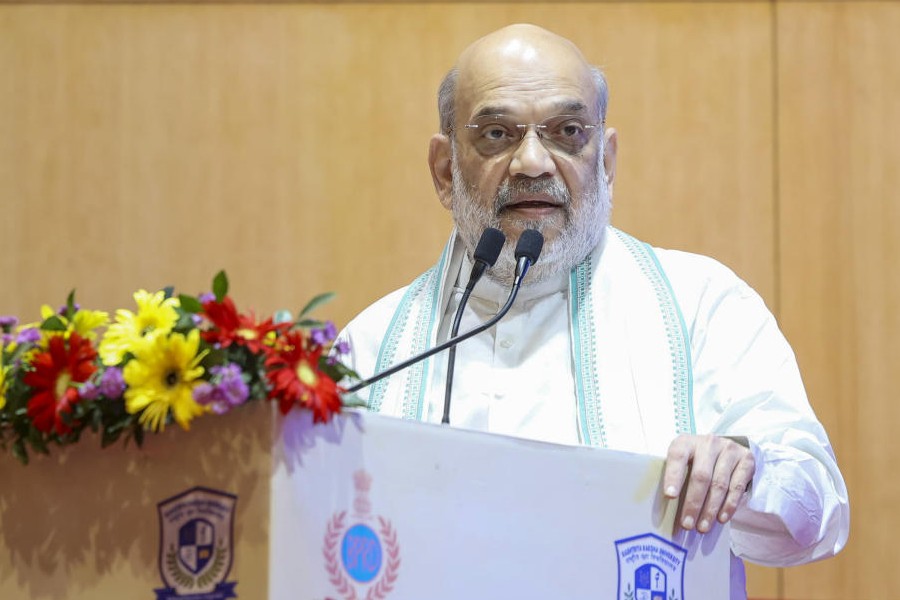If President Donald Trump pieces together an Electoral College win Tuesday, at least one pollster — and perhaps only one — will be able to say, “I told you so.”
That person is Robert Cahaly, whose Trafalgar Group this year has released a consistent stream of battleground-state polls showing the president highly competitive against Joe Biden, and often out ahead, in states where most other pollsters have shown a steady Biden lead.
Trafalgar does not disclose its methods, and is considered far too shadowy by other pollsters to be taken seriously. Mostly, they dismiss it as an outlier. But for Cahaly, “I told you so” is already a calling card.
In 2016, its first time publicly releasing polls, Trafalgar was the firm whose state surveys most effectively presaged Trump’s upset win. A veteran Republican strategist, Cahaly even called the exact number of Electoral College votes that Trump and Hillary Clinton would receive — 306-227 — although his prediction of which states would get them there was just slightly off.
So with liberal anxieties flaring over whether to trust the polls, the gregarious, goatee-and-bowtie-wearing Cahaly has been in demand on cable news lately. In addition to frequent appearances on Fox News, Cahaly was on CNN last week, explaining to Michael Smerconish why he thought the president would walk away with an easy victory — and defending himself against a battery of critiques that Smerconish called up, one by one, from Cahaly’s peers.
Amid a crush of preelection media coverage seeking his theory of the case — it drove more than 1.5 million clicks to Trafalgar’s site Monday, he said — the big question seems to be: Is it possible to believe a guy whose polls consistently give Trump just enough support for a narrow lead in most swing states, and who refuses to reveal much of anything about how he gets his data?
In his last few polls of this election season, Cahaly has found Trump with 2-to-3-point advantages in North Carolina, Arizona, Michigan and Florida, and wider leads elsewhere. That puts him far out of line with almost all major pollsters, whose surveys in those states are generally showing Biden with the edge. As different as things are this year, it’s hard to miss the echo of 2016, when Trafalgar occupied a similarly lonely position on the eve of Nov. 8.
Above all, Cahaly’s approach centers on the belief that everyone lies, but especially conservatives. This has largely been disproved by social science, but that hasn’t softened his conviction. To hear him explain it, traditional pollsters (he calls them “dinosaurs”) are crippled by “social desirability bias”: the tendency for respondents to say what they think an interviewer wants to hear, not what they actually believe. In Trump’s America, he says, that problem has grown worse.
“I just think people are not what they say they are, ever,” Cahaly said in a recent phone interview from Atlanta, where he lives. “We cannot eliminate the social desirability bias, we can only minimize it.”
Four years ago, he addressed this by asking people both whom they would support for president and whom they thought their neighbors would support. This year, he said, he is using other means to achieve the same result.
But he’s not saying what they are. Cahaly releases almost no real explanation of his polling methodology; the methods page on Trafalgar’s website contains what reads like a vague advertisement of its services and explains that its polls actively confront social desirability bias, without giving specifics as to how. He says that he uses a mixture of text messages, emails and phone calls — some automated, and some by live callers — to reach an accurate representation of the electorate.
Conventional pollsters, who abide by long-tested and broadly effective methods to glean a representative sample, aren’t buying it. Besides, if there was ever such a thing as a “shy Trump supporter” — someone reluctant to admit that he or she plans to vote for the president — that species has been made virtually extinct during the raucous, rally-holding Trump presidency, said Daniel Cox, a polling and public opinion expert at the conservative-leaning American Enterprise Institute.
“People do not seem embarrassed to support Mr. Trump,” Cox said. In the past four years, studies seeking to quantify a so-called “shy Trump” effect in surveys have generally found little evidence to support it.
There is something undeniably enticing about the story of a swashbuckling, norm-busting Southern pollster who rode into 2016 with a fresh approach and proved all the bigger shops wrong. Born in Georgia and raised in upstate South Carolina by a banker and a teacher, Cahaly developed a politics obsession as a child and majored in it at the University of South Carolina. He soon came under the wing of pollster Rod Shealy, an acolyte of Republican strategist Lee Atwater, and eventually started his own firm.
Named after a battle in the Napoleonic Wars when the British navy turned back French and Spanish ships on the high seas, Trafalgar, which he runs alone, has been doing surveys on behalf of clients since 2006.
Most of Trafalgar’s polling is done for conservative and Republican clients, although — in another snub of traditional standards — it has not reliably revealed when surveys are paid for by partisan interests.
In 2010, Cahaly was arrested and taken to court for violating a law against using automatic calling machines — known as robocalling — to conduct polls. The charges against him were eventually dropped, and he later successfully sued a state law enforcement agency, causing South Carolina’s prohibition on robocalls to be declared unconstitutional.
Cahaly said he was doing legitimate polling, aimed at truly understanding voters’ opinions — and getting what he called “dead-on” results. During the 2016 Republican primaries, he was early to spot a surge of enthusiasm from many working-class voters who had long felt alienated from politics and helped power Trump’s ascent.
In 2018, Cahaly again amassed a successful track record polling Senate and governors’ races, including surveys that correctly presaged Ron DeSantis’ and Rick Scott’s wins in Florida.
This year, he has continued to see strong Trump support among these voters, and he believes other pollsters are again underestimating their importance. Among Cahaly’s theories is that it takes five times as many calls to get a conservative voter to complete a poll than to get a liberal one. Others in the field say they find no evidence to support this in their own work.
But Cahaly insists it is presumptuous for pollsters to assume that they are drawing a representative sample of voters just because they are adhering to the scientific method. He returns to the country’s political divide, and how unwilling Americans are nowadays to communicate with each other from across the breach of suspicion. In a sense, he has positioned himself as a bard of Trumpism, giving voice to a silent majority — or at least, a majority in the Electoral College — that knows the elites consider its views deplorable, and therefore won’t express them freely to just anyone.
“Lee Atwater drilled into everyone around me that you have to get out of the head of politicos and into the head of Joe Six-Pack,” Cahaly said. “What do the average people think? And to do that I like to talk to average people. I like to follow up polling calls and chat with people for 30 minutes.”
Cahaly feels no need to reveal his techniques, despite the near-universal doubt about his work from his peers. “I’ve given away enough; I’m not giving away any more,” he said, arguing that it had been a mistake to even tell the public about his “neighbor question,” which some other firms have since adopted in their own surveys.
“I think we’ve developed something that’s very different from what other people do, and I really am not interested in telling people how we do it,” he said. “Just judge us by whether we get it right.”
New York Times News Service











